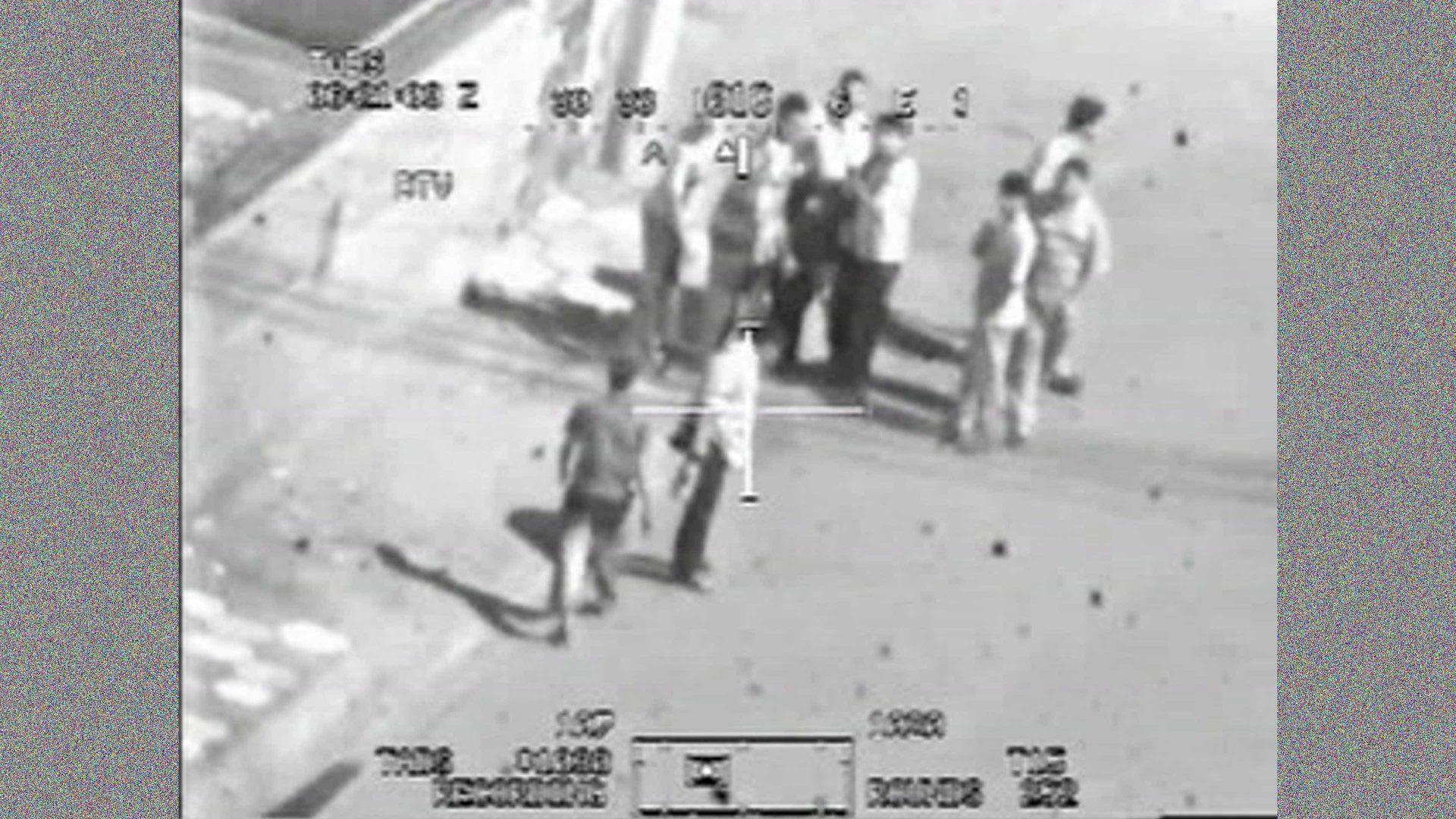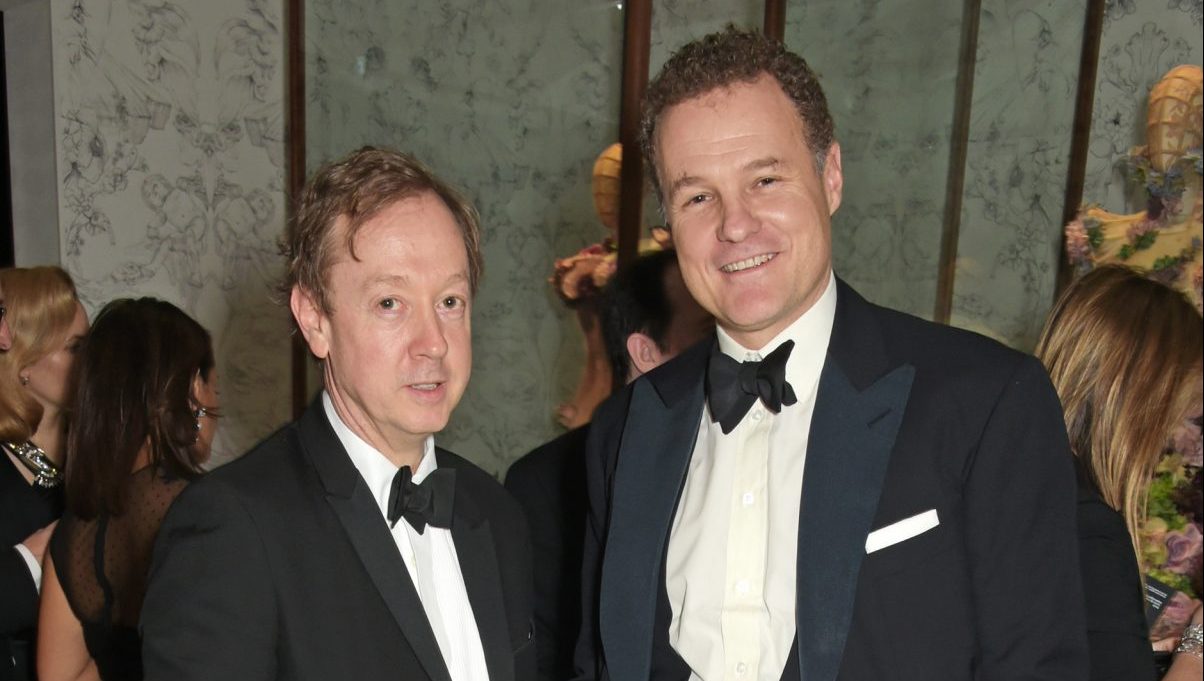On April 5 2010, the world could see for the first time what a small group of American soldiers in Iraq had seen years before.
In the footage, the occupants of a US Apache helicopter, with the callsign “crazyhorse”, can be seen opening fire on a group of nine men, immediately killing eight of them. The crew, joking as if they’re playing a video game, had apparently confused a Reuters journalist’s camera with an RPG, and acted to prevent the attack.
What came next was perhaps even more shocking: seeing the attack from the sky, the driver of a passing van stopped and got out to help the wounded. The crew were given permission to fire on him, too – killing him and injuring his two children, who had been in the car with him.
That video, leaked by Chelsea Manning and published by WikiLeaks under the title “Collateral Murder” shocked the world, and made headlines in newspapers across the planet. It did not lead to any consequences for those in the video, either for their apparently mistaken killings of civilians, nor for their utterly callous attitude as they did so.
It did lead to two separate stints in prison for Manning, however – and now, as the home secretary, Priti Patel, has approved his extradition, could lead to a jail sentence for WikiLeaks founder Julian Assange.
It should go without saying that any country that would punish the people releasing such a video while letting those portrayed in the footage go free is not a country in which justice is being served.
Collateral Murder was far from the only thing Chelsea Manning and WikiLeaks brought to the public eye. Documents from the Afghan war revealed the presence of death squads, menacing civilians in their hunt for al-Qaida. Documents from Iraq shed new light on the enormous death toll of the 2003 invasion and subsequent civil war.
Perhaps most chillingly in my memory are the inmate records from the US’s detention centre in Guantánamo Bay. The public had been told, repeatedly, that the offshore prison – with its famously inhumane conditions – housed only the “worst of the worst” of the country’s enemies.
The records revealed a very different story: taxi drivers had been flown there for their knowledge of smuggling routes. Wearing a Casio N-91 watch was taken as a sign that someone was a terrorist, because that model had been used in some improvised bombs. It was also the most common watch in the world.
Most disturbing of all was the shipping to the prison camp of an 89-year-old man with double incontinence and advanced dementia. Reporters had revealed some of this before – but these documents still revealed much, and provided much-needed hard evidence to support public claims.
It is for these releases – published at the same time by four of the world’s best newspapers (the Guardian, Der Spiegel, the New York Times and Le Monde) as well as in part by The Bureau of Investigative Journalism (my current employer) – that Assange is facing trial.
Much of what Assange has done since the Manning leaks is ethically, morally and legally dubious. Some wonder whether his 2016 publication of hacked emails from the Hillary Clinton campaign was a deliberate and knowing collaboration with the Russian state, which hacked them, though no one has offered public evidence of such.
Others note that Assange later published the source code of CIA hacking tools, in effect giving cyberweapons to the world. Still others point out his shameful conduct in relation to a different extradition case – when Sweden sought him to answer for two credible allegations of rape, from women who had previously been his supporters.
It is not for any of these that the US is seeking Assange, though. It is absolutely the case that the Swedish women who accused Assange of rape deserved access to the justice system and to see their day in court, which he cruelly denied them by his flight to the Ecuadorian embassy, after exhausting all legal options to prevent his extradition.
But two wrongs do not make a right. Similarly, if the US wished to offer evidence that Assange knowingly cooperated with Russian or other intelligence agencies to interfere in elections, they are perfectly able to do so.
That is not what they’re doing – they are prosecuting him for the publications that resulted in all of the significant public interest disclosures raised in this article. This is a dangerous precedent for press freedom that the US is setting – at a particularly dark time in its politics, when that freedom will be tested, and needs to be as strong as it ever has been.
It’s a prosecution that threatens media freedom far beyond the US’s borders. Autocrats love a false comparison to cover up their misdeeds – as China acts against journalists in Hong Kong (previously a bastion of media freedom), or Russia passes egregious media suppression laws, they can point to Assange’s prosecution and act as if everyone is as bad as each other.
But beyond that, it is simply unfair in its own right: Assange does not deserve to have faced years in jail pre-trial for this, and should not be facing prosecution and probably years more in jail for it. The question at hand is not “is Julian Assange a good journalist?” or even “is Julian Assange a journalist?” – it is “does he deserve to go to jail for his role in these revelations, whether you regard him as a journalist, a publisher, or a middleman?”
Recognising this lets us bypass supposedly reasonable explanations supporting his prosecution: people point out that Assange published all of the cables unredacted, for example. While this was a huge breach of decency and journalistic ethics, it does not relate to his prosecution – it’s simply not part of the indictment. That is a question for media commentators, not the US justice system.
More relevant to the prosecution is the inclusion of one charge (out of more than a dozen) relating to computer misuse – used to suggest that Assange’s prosecution is unproblematic because he was acting more like a hacker than a reporter.
The evidence offered so far is weak: Manning asked for help getting a password for a second account, so that two would have accessed the material, perhaps covering her tracks somewhat, and Assange agreed. There is no evidence he followed through, and no suggestion that the password would have accessed additional files – it is a weak, weak charge thrown in to provide cover to justify the extradition.
Assange makes it difficult to take his side, and his fans (who insist hailing Assange as anything less than the messiah is treachery) make it harder. None of that changes the strength of his moral case: this prosecution is dangerous, and it is unjust.
James Ball was an in-house journalist at Julian Assange’s Wikileaks in 2010




